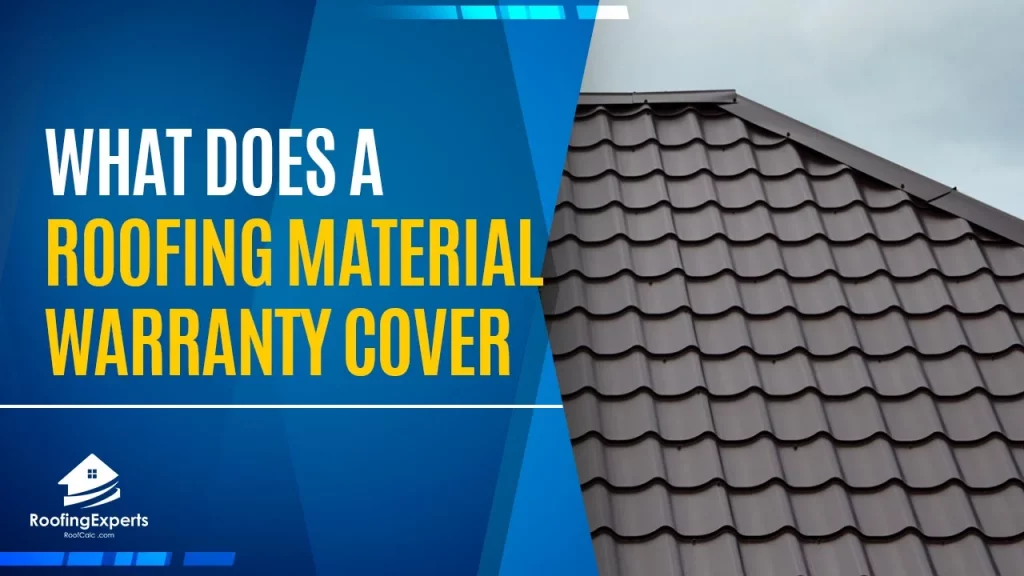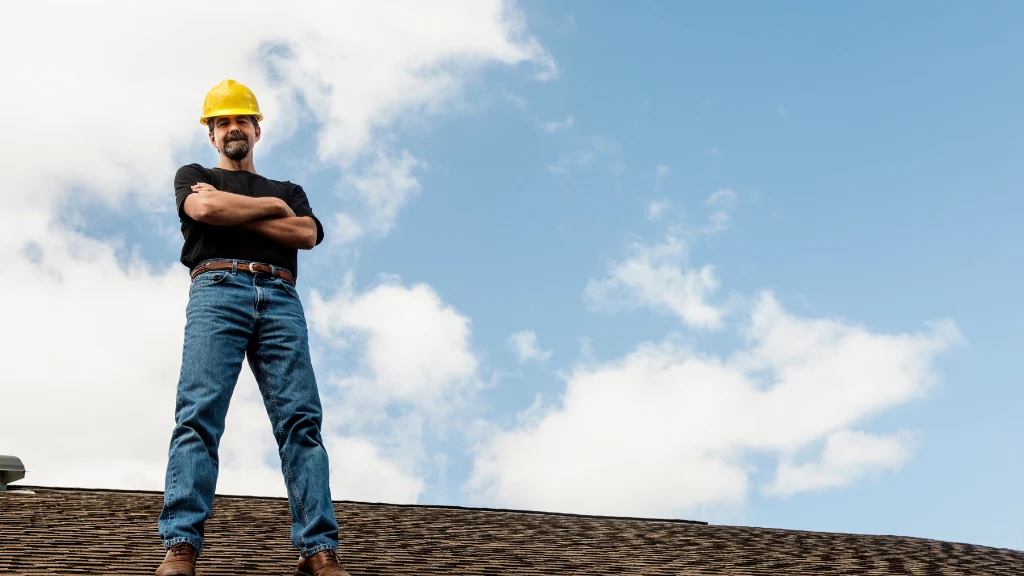
The roofing materials you choose for your home will make a big difference in how long they last and the level of protection they provide.
The best way to ensure that you are getting the most out of your investment is to purchase products with warranties that cover as many areas as possible.
This blog post explores what a typical roofing material warranty covers, as well as some other factors that homeowners should consider when making their decision on which product to buy.
Roofing Material Warranty
Knowing what protects your roof if there’s a problem is necessary when you invest in a new roof. A roof is always going to be a significant investment.
Roof warranties are for helping homeowners know what is covered in their home warranty. A material warranty is a manufacturer’s guarantee on the quality of the roofing materials.
The manufacturer will cover the cost to replace roofing materials if they are faulty. Roofing material manufacturers won’t stand behind a product if it is incorrectly installed.
If there are any issues with the roofing materials, it is best to contact a contractor immediately.
There are several types of roofs that have different warranties attached to them. A few examples include metal roofs and flat tile roofs.
Metal Roofs – Metal roofing has become more popular over the past decade because they offer homeowners long-lasting protection and they are easy to maintain.
Metal roofs also come with long-lasting warranties that can last up to 30 years on some products.
Flat Tile Roofs – A flat tile roof typically has a warranty between 15 and 25 years depending on the quality of the product and who manufactured it, as well as how the homeowner takes care of it.
A roof warranty is not a replacement for homeowner’s insurance, so it’s important to understand what your homeowners policy does and does not cover.
Homeowners need to ensure that they are covered in the event of any unforeseen events or accidents with their homes because roofs can have defects that lead to leaks or even damage an entire roof.
Roofing materials are not the only thing that comes with a warranty, as some contractors offer warranties on their workmanship for up to ten years.
If you do your research and compare products before making a choice, finding one with an extended warranty is usually more cost effective in the long run because it will help protect against repairs or replacement for a long time after the first purchase.
Choosing roofing material with warranties is about protecting your investment so that you can be sure to get as much use out of it as possible before repairs are required.
If you install your own roofing and it is damaged, the workmanship warranty will not help.
It is important to have a clear understanding of what your warranty covers so you know who will pay for the replacement or repairs.
If your roofing material is damaged, it’s best to contact a contractor as soon as possible before more damage can be done.

How Long Does a Roofing Warranty Last?
The warranty you get on your materials depends on the kind of roof you choose. You need to know what kind of roof you are buying before buying the warranty, because some roofs come with a longer warranty than others.
If you register your roof with the manufacturer, you’ll receive a non-prorated warranty that lasts 50 years.. If you don’t register the roof, your warranty will last 25 years and is non-prorated.
A lifetime material and workmanship warranty means that if anything happens to your home’s siding or windows, they’ll fix it for free within a year of purchase.
There are some limitations on what kind of damage can be covered under this type of warranty.
If your home is damaged by a storm or any other natural disaster, you can file a claim for compensation with the insurance company that insured your house.
Make sure to follow all filing deadlines so you don’t miss out on potential money from your policy.
The length of time that an individual roofing material warranty lasts depends on the material you choose.
Find a Reputable Roofing Contractor
A roofing contractor should be chosen with care because a bad installer can void the warranty on your roof. Roofing materials are often not covered by warranty if they were installed improperly.
When you choose a roofing contractor, do your research. Get recommendations from friends or family members who live in the area to see which contractors they would recommend.
- You should also ask for references and check them thoroughly before making your decision on whether or not this is someone you want working on your house.
- Once you’ve chosen a contractor, you can request a copy of their liability insurance policy before they start work on your house.
- If there is damage to the roof during installation and it voids the warranty, this type of policy will help cover any costs that may arise from filing a claim with the manufacturer.
In most cases, you’ll have nothing to worry about because your contractor should be insured if they are doing the job correctly.
While roofing material warranties differ depending on what you buy, most will cover your home for up to 50 years or more.
Before signing off on any project, make sure that you understand all of the fine print and can trust in whoever is selling it to give you accurate information.
A reputable roofing contractor should be able to offer warranties on their workmanship and materials, as well as provide you with a contract that includes all of the details of what is covered and for how long.
If you are planning on installing your own roofing material, make sure that it’s not an installation warranty you are buying.
- Roofing material warranties are generally not transferable and will only apply to the buyer of the home in most cases, so check before you buy if you’re planning on transferring ownership at any point during your warranty’s time frame.
- Once a roofing contractor has done their job and there is damage that voids the warranty, it’s best to contact the manufacturer directly for compensation.
- Some roofing material warranties are transferable if there is a new owner of the home after you sell it and some aren’t depending on what kind of warranty was purchased.
- If this information isn’t included in your contract or written down somewhere else, make sure that you ask the contractor.
- The length of time that a roofing material warranty covers your home depends on what kind of warranty you’ve purchased and whether or not there is a transferable policy available to the new owner in case they sell it.
In most cases, if you have no other damage to the house from installation, repairs made after work has been completed will not void the warranty.
Thus, it is important to get all of your questions answered upfront so that there are no surprises later on if you do have any damage, especially during installation.


